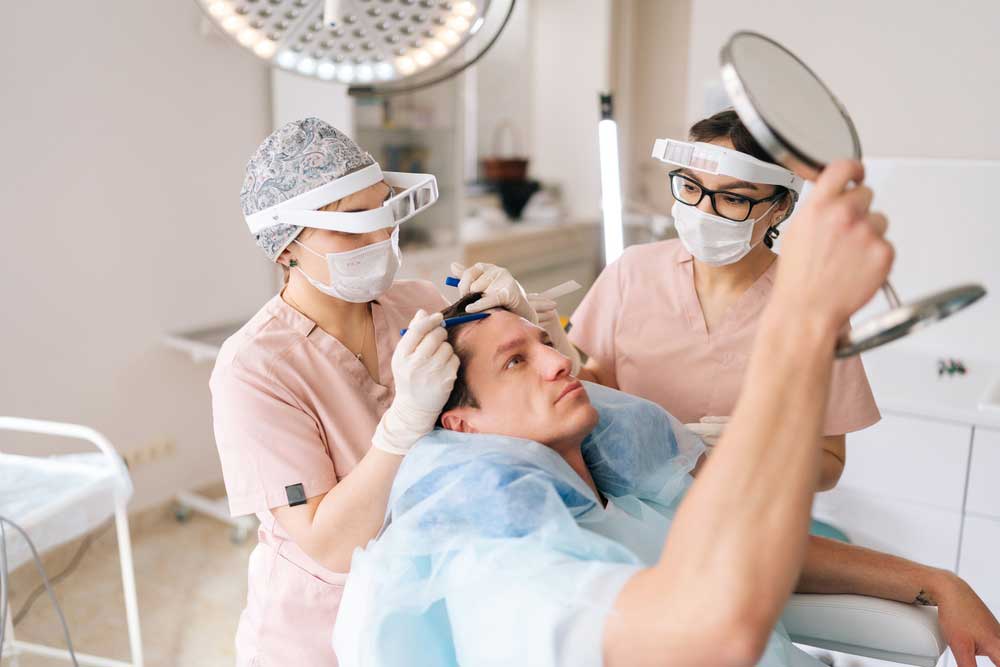Dry hair is a common condition that occurs when the scalp is not producing enough oil to keep the hair follicles moisturized. Hair dryness also occurs when the hair cannot retain moisture, thereby diminishing the shine and giving the hair a dull, brittle, and frizzy texture.
The sebaceous glands in our body produce sebum, an oily substance that lubricates and moisturizes the skin and the hair. Without adequate sebum, the follicles become susceptible to damage from external factors. Several factors can cause dry hair, including harsh hairstyles, smoking, humidity, exposure to sunlight, smoking, medication, etc. However, the silver lining is that there are treatment options that can lessen the dryness of your hair.
Dry Hair Causes
As mentioned earlier, dry hair can be attributed to various causes, such as harsh haircare practices, exposure to the elements, lifestyle habits, or your overall health. Even shampooing every day can sap essential oils from your hair, causing dryness.
The following are a few conditions that can lead to dry hair:
- Exposing your hair to extreme sunlight or harsh winds
- Swimming in salty or chlorinated water
- Washing your hair too often
- Harsh styling options such as perms, curlers, rollers, flat irons, etc.
- Using harsh shampoos and conditioners
- Blow-drying your hair regularly
- Brushing your hair the wrong way
- Age or hormonal changes
- Living in a dry, hot climate
- Sometimes, dry hair could occur due to medical conditions such as hypothyroidism, anorexia nervosa and bulimia, hypoparathyroidism, and Menkes syndrome
Related: Does Stress Actually Cause Early Gray Hair?
Dry Hair Treatment Options
If you are suffering from dry hair, the good news is that you can reduce the dryness in your hair by making a few changes in your diet, lifestyle, and hair care routine. Following are a few tips to prevent dry hair:
- Avoid harsh chemical treatments
- Protect your hair from sun exposure
- Avoid washing and shampooing your hair daily, and use a shampoo that suits your hair type
- Avoid frequent use of styling tools like blow-dryers, flat irons, rollers, and curling irons
- Massage your hair and scalp with natural oils and apply leave-in conditioners to keep your hair soft and shiny
- Avoid washing your hair with hot water
- Avoid smoking
- For people living in a dry climate, wearing caps, hats, or scarves while going outdoors and avoiding long-term exposure to harsh winds prevents dry hair
Dry Hair Diagnosis
If you notice that you have dry or severely frizzy hair, which persists even after altering your hair care routine, the best option is to get it diagnosed by a specialist.
To understand your condition better, your doctor might ask you some questions regarding your diet, lifestyle, hair care routine, and the symptoms you are experiencing, such as:
- What type of hair care and hair styling products do you use?
- What does your diet include?
- What symptoms are you experiencing?
- How many times in a week do you wash your hair?
- How long has your dry hair condition persisted?
- Do you style your hair with any styling tools?
You may also be prescribed some tests to check for any underlying health conditions that might cause dry hair.
Also Read: What Are the Best Treatment Options for Thinning Hair?
Dry Hair Prevention
As they say, prevention is better than cure! Why go through the process of looking for a cure when you can prevent the condition from happening?
To prevent dry hair, it is crucial to understand the factors that contribute to it. This will help you adopt certain lifestyle changes and alter your hair care routine to best suit your hair.
- Schedule an appointment with your hairdresser at least once every three months. Getting regular trims can go a long way in getting rid of split ends and giving your hair the occasional pampering.
- Use the right accessories for your hair. Avoid tight hairstyles like ponytails and buns tied with plastic or rubber bands. Instead, use soft, fabric-based scrunchies to tie your hair.
- Follow a diet rich in proteins, antioxidants, and omega-3 fatty acids. Drink lots of water so that your hair and skin remain hydrated.
Treat your hair loss today! Our team of experts at the New Jersey Hair Restoration Center provides the best hair transplants in New Jersey. Get in touch with us today for quality guidance and treatment options.


